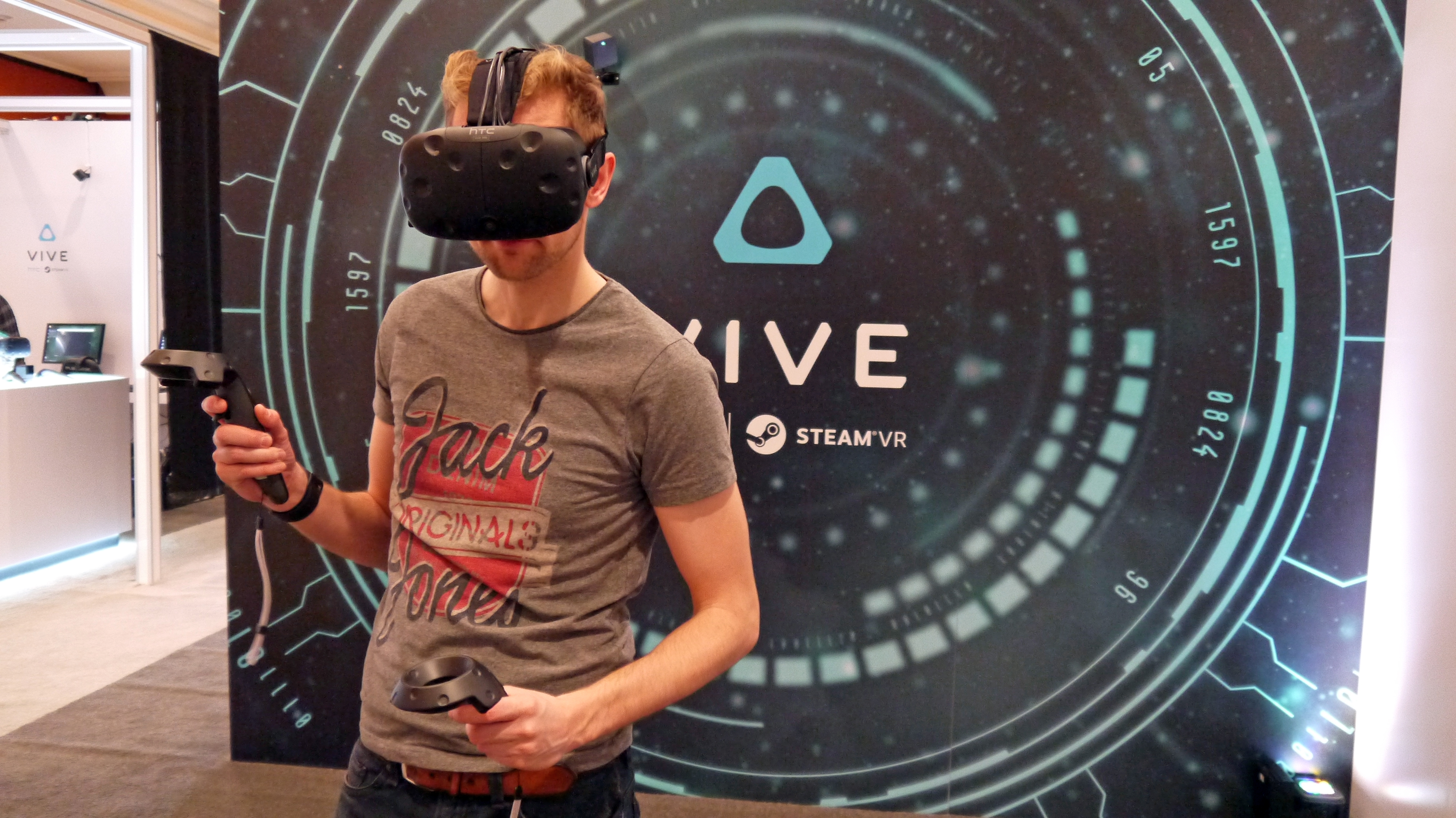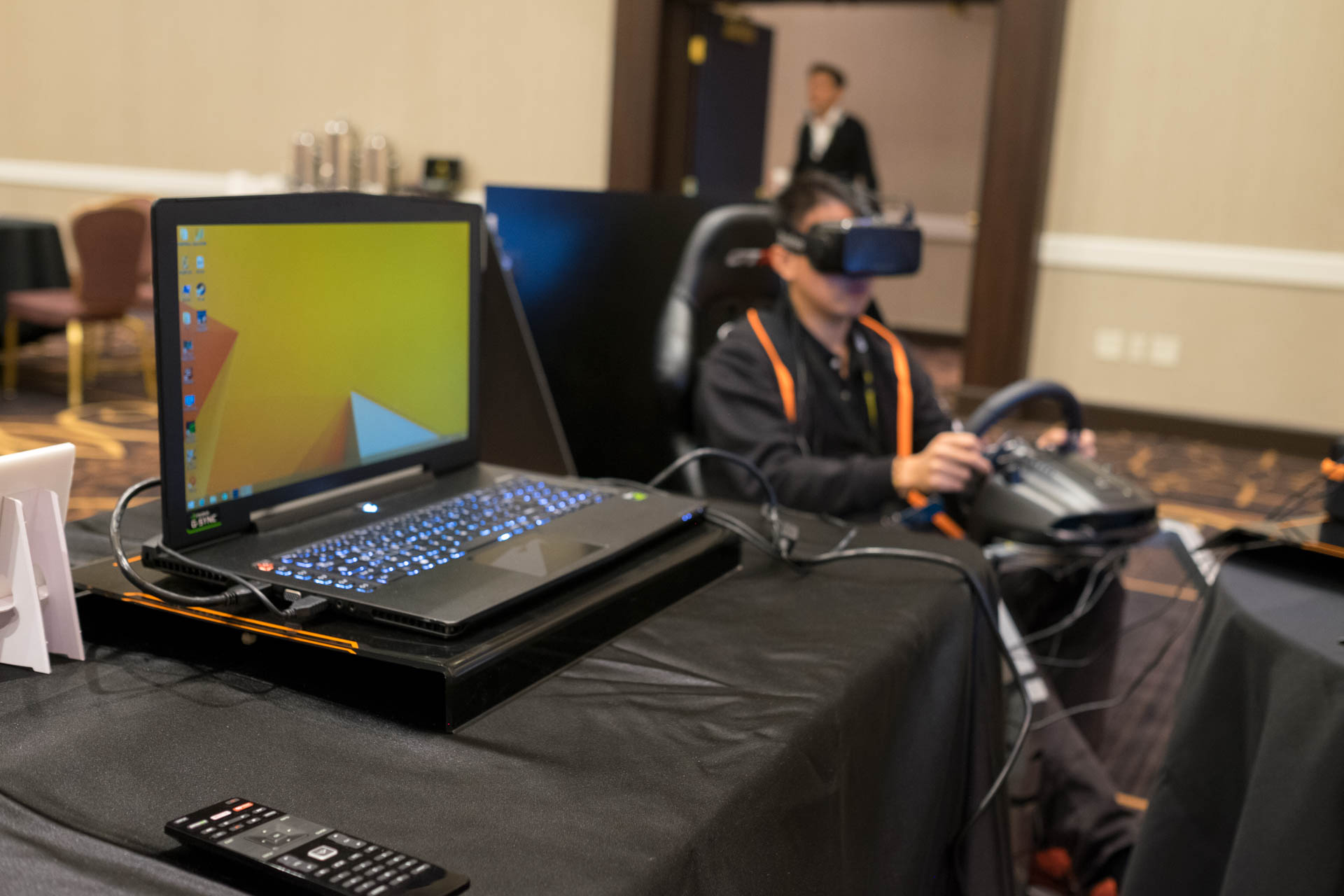No, of course VR isn't any good yet
Why would you think it's ready now?

Ladies and Gentlemen, I want to talk to you about something that's been bugging me of late: a lot of people are idiots.
Not all of you, of course, but some. Some people are just short-sighted and moronic and quick to judge without adding some foresight into their thought processes.
You can probably already guess what I'm referring to here. The question of whether VR is 'worth it' or not, and it seems so many people have got it mind-numblingly wrong already.
I've just spent four days straight with the HTC Vive Pre, which is nowhere near enough time to create a proper reviewer's opinion. It's not even finished yet (the Pre is a developers' edition), so I couldn't even formulate some definitive thoughts on whether you should be buying it or not.
But the sheer amount of people that tried it out for a few minutes or half an hour and decided 'they didn't like VR' was incredible. Everyone enjoyed the immersion but, when pushed, most said they wouldn't buy one, a snap decision about whether they would ever have virtual reality in their life already made.
That was the same judgement made by my friend who phoned me up specifically to find out how good the HTC Vive was – and even when I waxed lyrical about its performance, he said it was too expensive and began to switch off.

He's an ardent PlayStation fan, and likes the sound of the PlayStation VR. But when he heard how much it's going to cost, he lost interest.
Get daily insight, inspiration and deals in your inbox
Sign up for breaking news, reviews, opinion, top tech deals, and more.
It's as if because I write about technology I'm duty-bound to fight the cause of anything that's got electricity running through it. And that means supporting the Amazon Fire Phone, which I would never do.
Don't act surprised
Look: of course VR isn't offering anywhere close to value for money right now – it's only attractive to those that have the desire to suck up the cost. £1500 for the full HTC Vive setup, a couple of hundred less for Oculus, and £700 for the Playstation VR. Even Samsung's Gear VR costs up to £700 if you include the phone in the mix.
And they're currently novelties. The full games are still in the pipeline for the bigger platforms; the Gear VR has got reams of 'coming soon' titles, and even what's there now gets boring quickly. It's all demos, simple games that showcase the potential of the systems, a flavour of what could be coming down the line. We're worlds away from what will be coming in a few months or years time if the momentum continues to build.
The key word here is potential. Nobody should be looking at any of the VR rigs that you can get your hands on - even the budget Google Cardboard – as a purchase that offers value for money.
No, these companies know they're aiming at the early adopters, betting that there are enough of them to suck up the high costs to integrate themselves with the new systems.
And early signs suggest there are. HTC Vive nailed 15,000 sales in 10 minutes. Oculus founder Palmer Luckey said sales were 'better than I could have possibly expected' and people are actually buying Samsung phones to get their hands on a Gear VR.

There's a very real chance that Vive could be the product to save HTC as a company, and given the constantly worrying noises from the brand's smartphone arm that would be an impressive feat indeed.
More so than usual, the early adopters are crucial here. Because, as I had to ram into my friend's head, we are simply taking our first tentative steps into the world of mainstream VR with the headsets going on sale. It's not 'finished' by a long way.
Everything we've seen and experienced in the last few decades has been leading to this moment, the place where we can have genuine VR set ups in our home.
Back to the future
Think back a decade: smartphones were blocky, had the CPU power of a shoe and cameras that could, in all honesty, be bested by simply sketching what you saw rather than pressing the maddeningly slow shutter button.
Now we've got DSLR quality lenses in our pocket, more power than many laptops and screens so eye-bleedingly sharp that we're moaning about the amount of pixels shoved in. Your Nan wouldn't have bought the first iPhone, but I bet she's got a cheap Android phone in her bag "just in case".
Let's apply that logic to VR: in 2026 it's utterly feasible that the price of VR will be a fifth of what it is now, the headsets will be nothing more than a pair of smart goggles (they'll still need to be immersive, which is why sunglasses wouldn't work) and a tiny pair of Bluetooth earbuds will supply the sound.
A phone will be powerful enough to run the entire experience wirelessly, meaning you can be quietly fighting armies of space robots on the bus and nobody would be any the wiser – although your slightly odd movements will probably be telling.
Just remember that it's fine to be excited about VR right now and not have any intention of buying it - just salute the crazy people who are throwing all their money at the headsets because, when you finally convince yourself that you should buy a VR headset 'for the family' or 'for Christmas' in a few years time, their faith was what made this awesome new world happen.

Gareth has been part of the consumer technology world in a career spanning three decades. He started life as a staff writer on the fledgling TechRadar, and has grew with the site (primarily as phones, tablets and wearables editor) until becoming Global Editor in Chief in 2018. Gareth has written over 4,000 articles for TechRadar, has contributed expert insight to a number of other publications, chaired panels on zeitgeist technologies, presented at the Gadget Show Live as well as representing the brand on TV and radio for multiple channels including Sky, BBC, ITV and Al-Jazeera. Passionate about fitness, he can bore anyone rigid about stress management, sleep tracking, heart rate variance as well as bemoaning something about the latest iPhone, Galaxy or OLED TV.